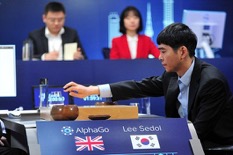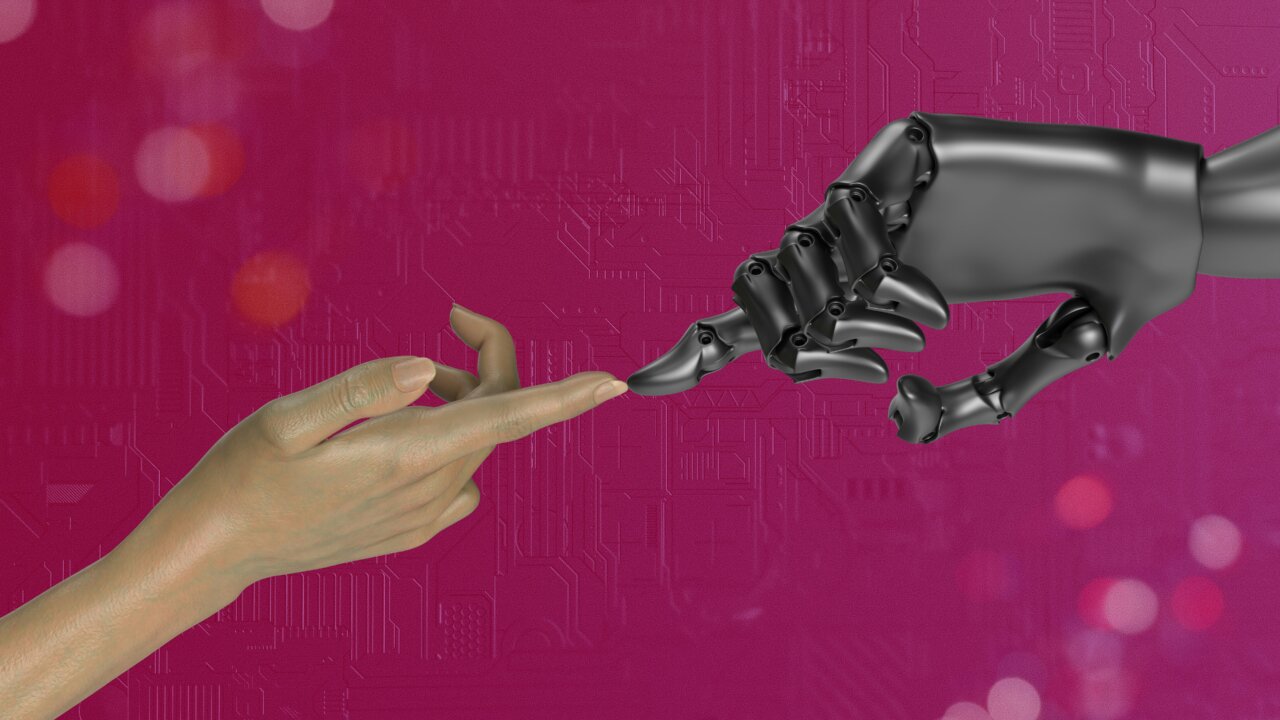Our Thoughts
Branding Artificial Intelligence: what’s pop culture got to do with it?
“Thinking is a human feature. Will AI someday really think? That’s like asking if submarines swim. If you call it swimming then robots will think, yes.” ― Noam Chomsky
Artificial intelligence was branded by the cultural imagination long before it was by consumer brands. The very word “artificial” stems from the Latin “made from art.” And whilst the meeting of ‘artificial’ with ‘intelligence’ refers to the actual technology of AI, wider human cultural creations (that is, art) are crucial to how AI is perceived and received by the public. Understanding the semiotic groundwork laid for AI in popular, fictive fantasies might well be decisive for brands seeking to connect smart technology to consumers.
From the success of HBO’s ‘Westworld’ series in 2016, reaching back to Mary Shelley’s Frankenstein and ETA Hoffmann’s tales of the uncanny, pop culture broadly codes humans as wired to fear humanoids. The ideas of robotic ‘Intelligence’ and ‘Smart Tech’ are linguistically impregnated with threat. Fundamental to human activity is a (naturally) self-centred will to survive; we possess intelligence as a tool for self-protection, in order to go forth and multiply. If intelligence is rooted in this desire for self-protection, how can we trust that intelligent machines seek to better us? Won’t they ultimately seek to protect themselves, at our risk? Fear of the robotic Other is grounded in questions the Other poses to the Self. Today, this concern is both physical and philosophical, as self-checkouts and robotics make former job roles redundant.
Science fiction often transplants these pragmatic, real worries to plots fuelled by AI villains with murderous ends – such lethal examples are found in Blade Runner’s bio-engineered replicants, and HAL 9000, the vengeful computer system in 2001: A Space Odyssey. More recent imaginings of AI include Channel 4’s ‘Humans’ and HBO’s ‘Westworld.’ What makes ‘Westworld’ so compelling is its depiction of the human condition, as much as the robotic one. The show revolves around an eponymous, futuristic theme park ‘hosted’ by lifelike androids, whom human guests can use for pleasure at will. What seemingly begins as a tale of robotic peril steadily unravels as a tale of human fallibility, questioning the ethics and intellect of both the human guests and the park’s owners – and, by extension, the audience at home.

Against this cultural backdrop, the branding of smart technology rightly works to communicate a non-threatening, benevolent disposition, beckoning a future in which thinking machines have solely human interests at heart. The feminine softness of Amazon’s “Alexa” grounds the tech’s persona in maternal nurture and benevolence (interestingly, the name ‘Alexa’ derives from the Greek Alexo, meaning: ‘defender of man’). Google Home’s sleek, rounded curves, small size and minimalist surfaces signal comfort, balance and modesty. Semantically, Amazon “Echo” is constructed as a product that merely follows and reflects the user, never capable of slipping into speaking first, or, self-determination.
Thus a seminal moment for AI research came in 2014, when Google’s AlphaGo program emerged the victor of Chinese strategy game Go against world champion Lee Sedol. What made the program’s win so exciting – and unnerving – was the way AlphaGo’s entirely new, non-programmed approach to the board game seemed to promise the possibility of computerised intuition and instinct.

For the most part, however, robotic creations will only ever be able to do what they’re told. Within and beyond pop culture, it’s this fact that is most threatening of all. What we most fear of machines is that which we fear within ourselves. When we see gender bias in bots (e.g. this supplicant femme bot saying, “Yes, my lord. What can I do for you?”), we see more clearly the flaws engrained in our own behaviours and social norms.
From Westworld to our World
Much of our intrigue, let alone enthralled fear of robotic intelligence, is rooted in our fascination with what it might learn from humans. When pop culture gets excited by AI, it’s excited by seeing itself in a refracted mirror. Brands integrating AI will do well to emphasise not the smart-ness of the product, but the Smart Consumer who bought it. Moreover, just as a computer won the seminal Go match by thinking up whole new ways to approach the board, AI should remind humans of how we can use tech to redraw our own society’s existing flaws – we don’t have to perpetuate them.
– Katrina Russell

